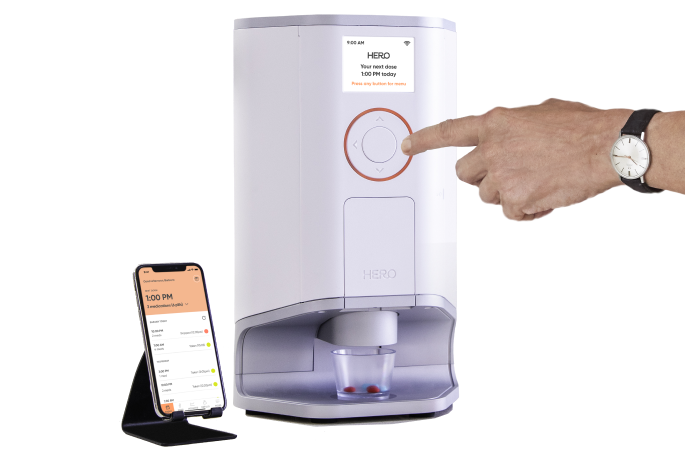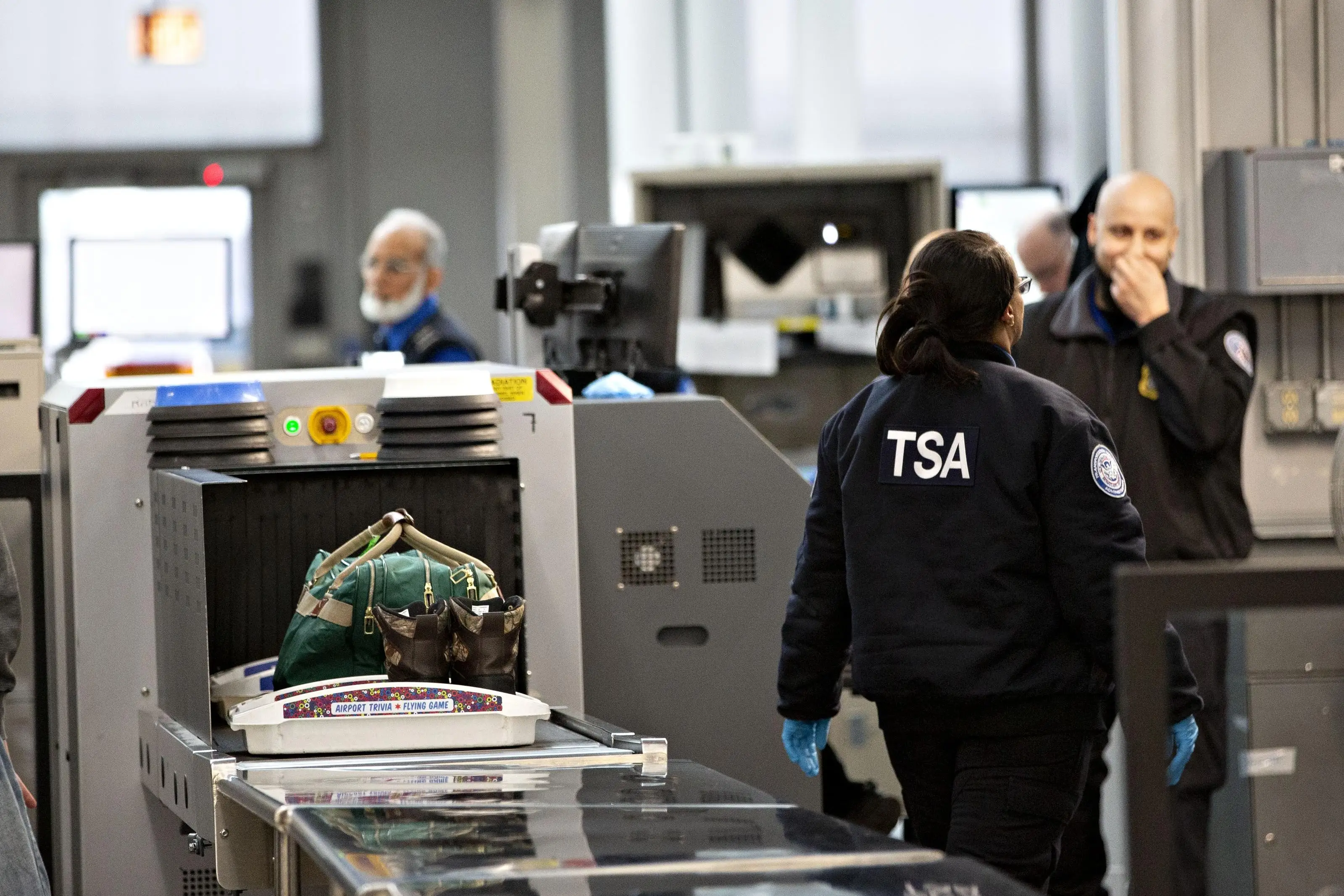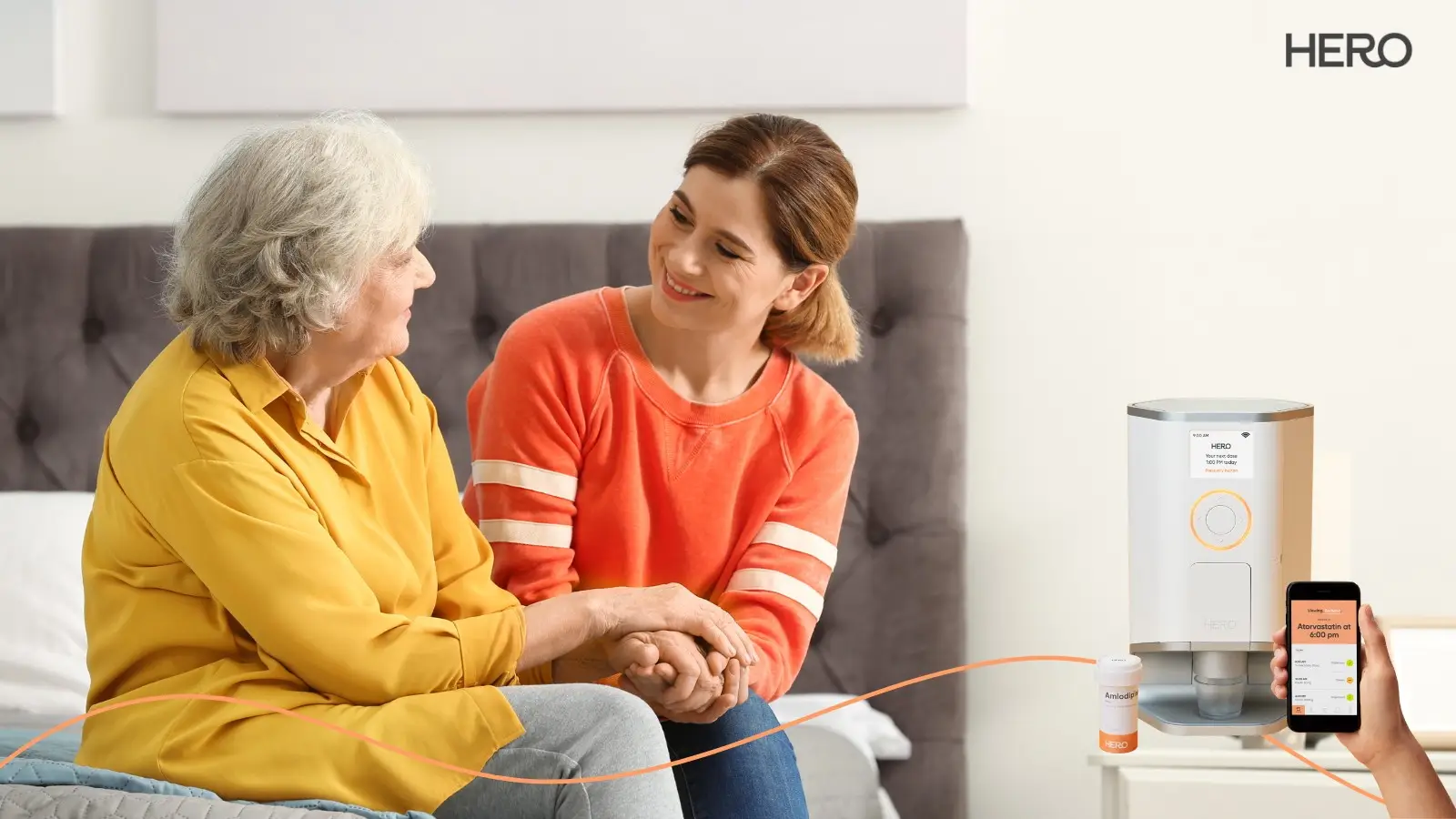Still in Summer Mode? Here’s How to Get Your Medication Routine Back on Track

Whether your medication routine fell off this summer, or you noticed a loved one’s schedule slipping, you’re not imagining it. Between travel, social plans, and that relaxed summer rhythm, staying consistent isn’t always easy. It’s a common challenge, but getting your routine back is simpler than you might think. This guide offers simple, actionable steps that turn daily stress into an empowering act of self-care, because a consistent medication routine is the foundation for feeling your best, all year long.
Why Summer Throws Medication Routine Off Course
Summer often means a break from the usual 9-to-5. Vacations shift time zones, grandkids visit, and spontaneous backyard barbecues creep over dose times. Even small changes like grabbing an iced coffee instead of breakfast can nudge a dose off schedule.
And there’s the mindset shift, summer invites us to relax and let go. All of that can disrupt the cues that normally prompt meds, which is why adherence often dips in July and August1,2; the anchors we rely on (morning commute, regular lunch, evening TV) simply go missing.
Why Getting Back on Track Matters
Gently getting back into a consistent routine isn't just about checking a box. It's about investing in your well-being. Consistent medication adherence is crucial for managing chronic conditions like heart disease, diabetes, or hypertension, and helps you get the full benefit of your treatment.
Beyond the physical benefits, a predictable routine can provide a powerful sense of stability and control. When your health management feels organized, it can reduce background anxiety and free up mental energy for other things, giving you one less thing to worry about.
7 Simple Steps to Rebuild Your Medication Routine
Start with a mindset reset. As you restart your routine, give yourself some grace. Remember, 'good enough' beats 'perfect', especially while you’re getting back on track. This shift can help lower stress and stop the all-or-nothing spiral, where one missed dose feels like a total failure.
With that in mind, here are seven simple, practical steps to rebuild your health habits:
1. Anchor Your Meds to a Strong Habit
The easiest way to build a new habit is to attach it to one you already do every single day. Think about the unshakable pillars of your day: brushing your teeth, having that first cup of coffee, or feeding your pet. Make taking your medication the very next step. This is often more effective than an alarm alone because your anchor habit travels with you, even on vacation.
2. Use alarms that move with you
A phone reminder is a great start, but it's easy to miss. Maybe your phone’s on silent, charging in another room, or you swipe the notification away without thinking. For a more reliable routine, add alarms that move with you. A gentle vibration from your smartwatch or a friendly nudge from a smart speaker can help you stay on track, especially on unstructured summer days when your phone isn’t always close by.
3. Create Clear Visual Cues
Out of sight is often out of mind. Make your medications a visible part of your environment. Place your weekly pill organizer right next to the coffee maker or on your bedside table—wherever you’re most likely to see it at the right time. For family members or medication partners helping someone else, this might mean placing their organizer next to their favorite chair or the TV remote. The goal is to make it impossible to ignore.
4. Beat the Summer Heat
Medication safety is a key part of any consistent medication routine. Heat exposure may damage medication delivery devices and may degrade medications.6 Always keep them in a cool, dry place and out of direct sunlight, both at home and when traveling.5
5. Simplify Your Refills
One of the biggest logistical headaches is managing pharmacy runs for multiple prescriptions. Ask your pharmacy about two services that can make a huge difference:
- Medication synchronization (Med Sync): This service aligns all your refills for the same day each month, reducing multiple pharmacy trips and improving convenience.
- Delivery services: These remove one more errand from your to-do list, offering the convenience of home delivery.
6. Know When to Call Your Pharmacist or Clinician
Your pharmacist and doctor are your best resources, especially when your routine changes. Don't hesitate to ask them specific questions about how summer's changes in meal timing, sleep, or activity might affect your dosing schedule.
When you travel, your health care provider may recommend that you adjust your medicine schedule to account for changes in time zones, routine, and diet. Ask your doctor or pharmacist about these changes before you depart.5
Confirm what to do if you miss a dose—is it better to take it late or skip it? If you suspect your pills were exposed to extreme heat, ask if they need to be replaced. Remember, it's always better to be safe than sorry.
7. Get Support for Your Medication Schedule
You don’t have to do it alone. If you're struggling to stay on track, ask a trusted medication partner or family member for help. A simple, friendly text: "Hey, did you take your 8 p.m. meds?", can make all the difference. For caregivers, this is your vital role, but remember that a gentle, supportive reminder is always more effective than nagging.
Checklists for a Stress-Free Medication Routine
Sometimes the best way to get organized is with a simple, straightforward tool. Use these checklists to reduce stress and stay prepared.
Travel Day Checklist (for your carry-on, always):
- Medications for the entire trip, plus at least one extra day's worth for potential delays.3
- A printed list of all your medications, including prescription drugs, over-the-counter medicines, vitamins, and supplements.5
- If traveling internationally, carry medications in their original, labeled containers.3
- Remember to never check essential medications in your luggage; always keep them in your carry-on bag.3,4
- Do a final sweep before you leave. It’s easy to leave medications on a nightstand or in a hotel bathroom. Set a reminder on your phone for 10 minutes before checkout to specifically pack your meds.
- A small water bottle and a snack, especially if any medications need to be taken with food.
- Always store all medications and first aid supplies in a durable, water-resistant container and keep them easily accessible during your journey.4 An insulated pouch works well for heat protection for your medications.
Busy Week Reset Checklist (10 minutes on Sunday night):
- Fill your pill organizer for the week or confirm your smart dispenser's schedule is correct
- Check your pill bottles for any that are running low and request refills.
- Update any phone or calendar reminders to account for new events or appointments.
- Share the week's plan with your medication partner or loved one so you’re both aware and aligned.
A Note for Caregivers: Supporting Your Loved One (and Yourself)
If you're a caregiver, you know that managing a loved one's medication routine carries an immense mental and emotional load. You’re not just a helper; you’re a vital safety net. When a routine gets disrupted, it's often your peace of mind that takes the biggest hit. Remember to approach conversations about getting back on track with empathy, framing it as a team effort. Instead of asking: "Did you forget your meds again?", try: "How can we make it easier to remember our new schedule?".
Creating a simple, reliable system isn't just about your loved one's health - it's also a critical act of self-care for you. The more you can streamline the process and reduce the need for constant reminders and worry, the more you can protect yourself from burnout. Giving yourself one less thing to worry about is truly a gift to you both.
Complex med schedule? We solved it.
Hero’s smart dispenser reminds you to take your meds and dispenses the right dose, at the right time.

The Simple Path to Effortless Consistency
While these manual steps are effective, they can still require significant time and mental energy. For those seeking to simplify their medication routine and reduce its mental load, Hero offers an effortless solution.
A Hero subscription includes access to our award-winning smart dispenser that automatically sorts and dispenses up to a 90-day supply of 10 different medications according to your specific schedule. When it’s time for a dose, the dispenser lights up and makes a sound - all you have to do is press a button on the device itself or remotely via the connected app, take your meds, and get on with your day.
The connected app sends timely reminders for pill time, so you never have to rely on memory alone. This provides powerful peace of mind, especially for caregivers, who can receive missed-dose notifications if their loved one forgets. It’s a simple way for caregivers to check in and stay connected without being intrusive. You can also be notified when medications are running low, further reducing worry.
And for those summer trips? Hero’s travel-friendly features make it easy to take your routine with you. Use Travel Mode to bring the smart dispenser on the go, or get meds dispensed early with Vacation Mode for worry-free packing.
A Daily Act of Care
Getting back on track after a summer of fun doesn’t have to be a chore. With a forgiving mindset and a few practical moves, consistency returns. A reliable medication routine is more than a task - it’s a small daily act of care that helps you feel your best. It’s a foundation for stability, peace of mind, and the freedom to focus on what really matters, whether you’re taking meds yourself or helping a loved one.
Sources:
1.Bandiera C, et al. Medication Adherence Evaluated Through Electronic Monitors During the 2020 COVID-19 Lockdown in Switzerland: A Longitudinal Analysis. (2018–2020 analysis with a summertime dip in 2019 noted in subanalysis). https://pubmed.ncbi.nlm.nih.gov/36046500/
2. Schatz M, et al. Seasonal patterns of asthma medication fills among diverse populations. (Fill rates lowest in mid-summer across years). https://www.tandfonline.com/doi/abs/10.1080/02770903.2017.1362426
3. CDC – Traveling Abroad with Medicine. Keep meds in carry-on, in original labeled containers, and bring extra for delays. https://wwwnc.cdc.gov/travel/page/travel-abroad-with-medicine
4.CDC Yellow Book – Travel Health Kits. https://www.cdc.gov/yellow-book/hcp/preparing-international-travelers/travel-health-kits.html
5. National Institute on Aging – Taking Medicines Safely as You Age. https://www.nia.nih.gov/health/medicines-and-medication-management/taking-medicines-safely-you-age
6. CDC – Heat and Medications - Guidance for Clinicians https://www.cdc.gov/heat-health/hcp/clinical-guidance/heat-and-medications-guidance-for-clinicians.html
The contents of the above article are for informational and educational purposes only. The article is not intended to be a substitute for professional medical advice, diagnosis, or treatment. Always seek the advice of your physician or other qualified clinician with any questions you may have regarding a medical condition or its treatment and do not disregard professional medical advice or delay seeking it because of information published by us. Hero is indicated for medication dispensing for general use and not for patients with any specific disease or condition. Any reference to specific conditions are for informational purposes only and are not indications for use of the device.



